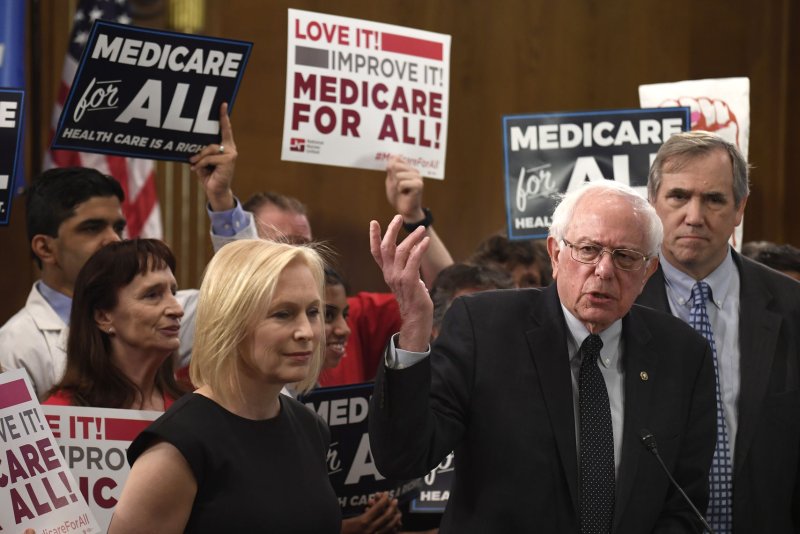Sen. Bernie Sanders of Vermont introduces the Medicare for All Act of 2019 at the U.S. Capitol on April 10. File Photo by Mike Theiler/UPI |
License Photo
Dec. 5 (UPI) -- A majority of Americans still prefer private health insurance over government-run alternatives, a new survey shows.
Gallup's annual Health and Healthcare poll Wednesday found that much like in previous years, most respondents said they favor private insurance programs over public alternatives by a 54-42 percent margin. That compares to a 54-40 percent split for private systems in 2018.
The growing support for government-run coverage, however, is part of a trend. Backing for public alternatives averaged only 36 percent from 2010 to 2014, but has risen beyond 40 percent in each of the last five years.
Multiple Democratic presidential candidates advocate various forms of expanded government-run health insurance plans. The House energy and commerce committee will hold a hearing next week to evaluate public concepts, including the "Medicare For All"-style plans favored by presidential candidates Bernie Sanders and Elizabeth Warren.
Gallup found great political divides on the question, with the Medicare For All reflecting most views in the Democratic Party base. Since 2015, an average of 65 percent of Democrats have favored a government-run system, while Republicans have overwhelmingly supported private coverage (84 percent).
Independents, meanwhile, are divided. Fifty percent favor private and 45 percent prefer a government-run alternative.
Earlier this week, Gallup research showed fewer Americans are critical of the present U.S. healthcare system -- the lowest level, in fact, since the pollster began asking the question in 1994.
Gallup interviewed more than 1,000 U.S. adults for Wednesday's survey, which has a margin of error of 4 points.















